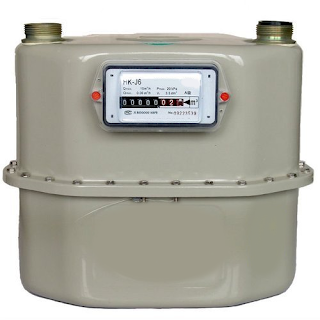These devices are essential for tracking usage, managing costs, and ensuring compliance with regulatory standards. In this comprehensive guide, we'll explore the significance of commercial gas meters, their key features, benefits, and the impact they have on businesses and industries.
Understanding Commercial Gas Meters
Commercial gas meters are specialized devices designed to measure the volume of natural gas or propane consumed by commercial and industrial facilities. Unlike residential meters, which are typically smaller and simpler in design, commercial gas meters are larger and more robust to accommodate the higher flow rates and usage demands of commercial establishments.
Key Features of Commercial Gas Meters
1. High Accuracy:
Commercial gas meters are highly accurate, providing precise measurements of gas consumption to ensure billing accuracy and regulatory compliance.
2. Wide Range of Flow Rates:
These meters can handle a wide range of flow rates, from low to high, making them suitable for businesses with varying levels of gas usage.
3. Remote Monitoring Capabilities:
Many commercial gas meters are equipped with remote monitoring capabilities, allowing businesses to track usage in real-time and identify potential issues or anomalies.
4. Data Logging and Reporting:
Commercial gas meters often feature data logging and reporting functionalities, enabling businesses to generate detailed reports on gas consumption for analysis and decision-making.
Benefits of Commercial Gas Meters
1. Cost Savings:
By accurately measuring gas consumption, commercial gas meters help businesses identify inefficiencies and opportunities for cost savings, ultimately reducing energy expenses.
2. Improved Efficiency:
With real-time monitoring and data analytics, businesses can identify trends, patterns, and areas for improvement in gas usage, leading to greater operational efficiency.
3. Regulatory Compliance:
Commercial gas meters ensure compliance with regulatory standards and reporting requirements, helping businesses avoid penalties and legal liabilities.
4. Environmental Sustainability:
By optimizing gas usage and reducing waste, commercial gas meters contribute to environmental sustainability efforts, reducing carbon emissions and ecological impact.
Applications of Commercial Gas Meters
1. Manufacturing and Industrial Facilities:
Commercial gas meters are commonly used in manufacturing plants, refineries, and industrial facilities to monitor gas consumption for production processes and heating applications.
2. Commercial Buildings:
In commercial buildings such as office complexes, retail stores, and hotels, gas meters are used to track usage for heating, hot water, cooking, and other energy-intensive activities.
3. Healthcare Facilities:
Hospitals, clinics, and medical centers rely on gas meters to monitor gas usage for sterilization, HVAC systems, and medical equipment, ensuring patient comfort and safety.
4. Educational Institutions:
Schools, colleges, and universities use gas meters to monitor usage in laboratories, classrooms, dormitories, and other campus facilities, optimizing energy management and reducing costs.
Conclusion: Empowering Businesses with Energy Efficiency
In conclusion, commercial gas meters play a critical role in energy management and efficiency for businesses across industries. By accurately measuring gas consumption, these devices help businesses control costs, improve operational efficiency, and ensure regulatory compliance. With advanced features such as remote monitoring, data analytics, and reporting capabilities, commercial gas meters empower businesses to make informed decisions and optimize their energy usage for a sustainable future.






0 Comments